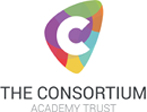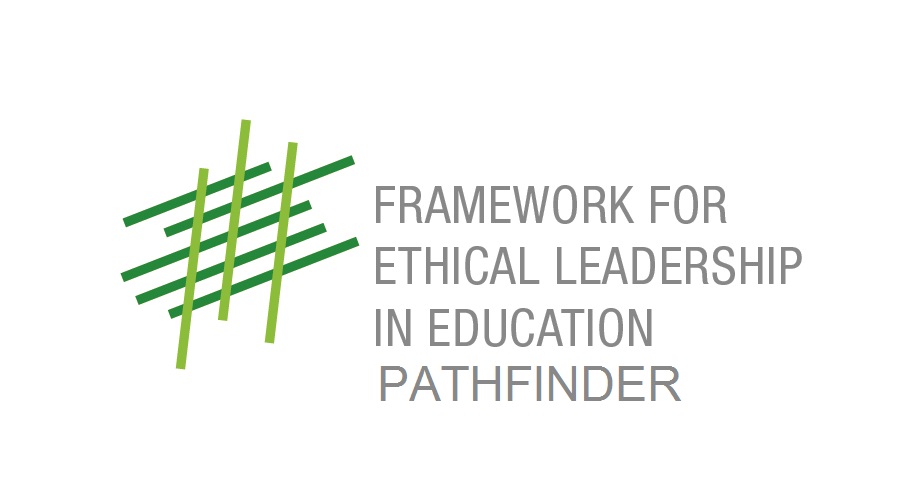Holderness Communicator (Literacy & Reading)
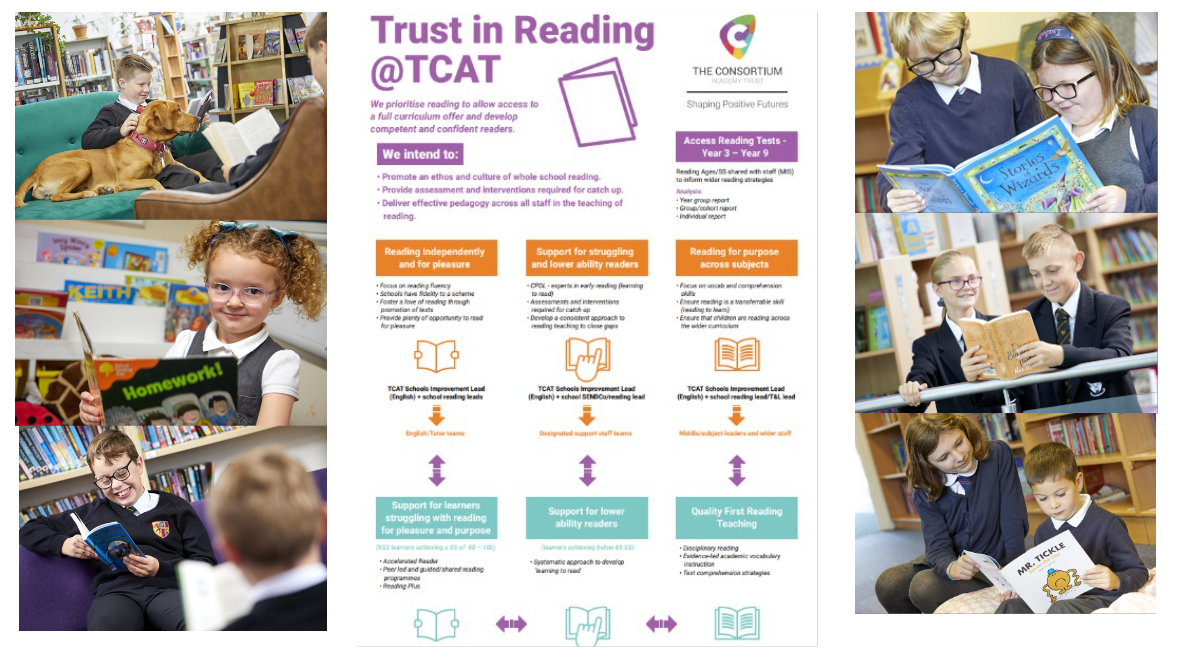 The Holderness Communicator initiative is a collective responsibility to enable the Holderness Learner to possess communication skills:
The Holderness Communicator initiative is a collective responsibility to enable the Holderness Learner to possess communication skills:
-
The Holderness Communicator should recognise how ‘talk matters’ and use ‘talk’ as a means of understanding subject content.
-
The Holderness Communicator will be able to read and access academic texts whilst being a strategic reader.
-
The Holderness Communicator will be able to access and use academic language.
Our Holderness Communicator map: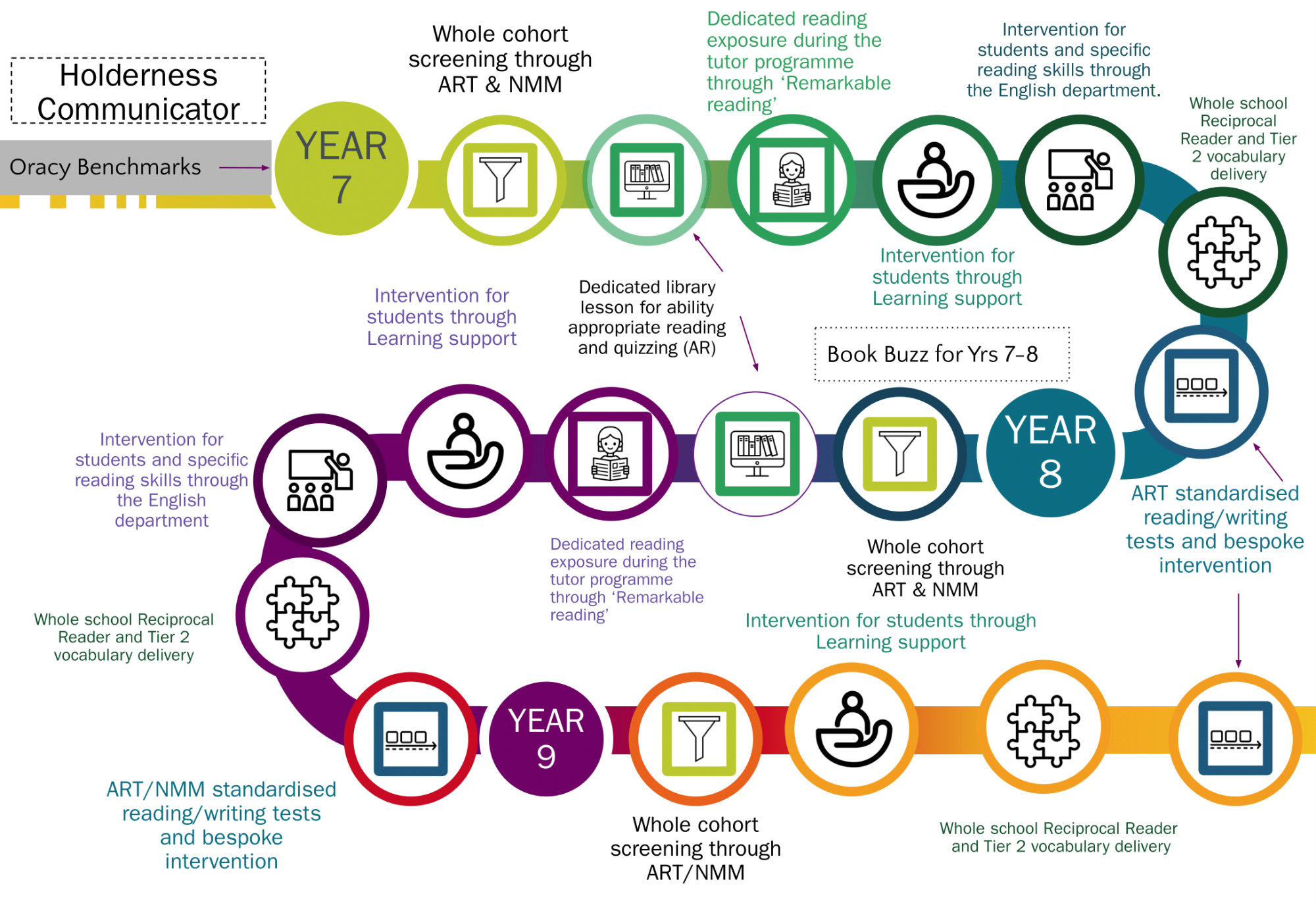
Our approach to literacy is that of shared responsibility within all subject areas (disciplinary literacy) and students should be exposed to opportunities to develop Holderness Communicator skills in every lesson across the curriculum.
-
The Holderness Communicator should recognise how ‘talk matters’ and use ‘talk’ as a means of understanding subject content.
Students are encouraged to demonstrate oracy skills in every lesson. Our oracy goal speaking stems are useful starting points:
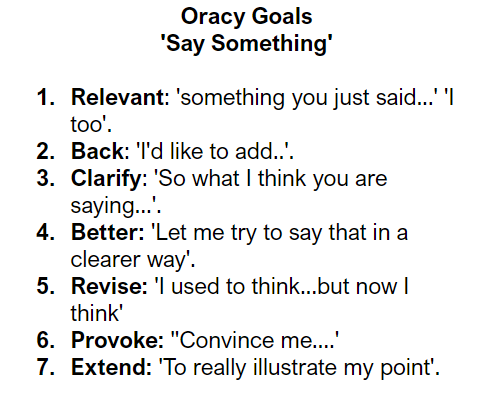
The Holderness Communicator will be able to read and access academic texts whilst being a strategic reader.
Studies show that reading for pleasure makes a big difference to children’s educational performance.
Evidence suggests that children who read for enjoyment every day not only perform better in reading tests than those who don’t, but also develop a broader vocabulary, increased general knowledge and a better understanding of other cultures.
In fact, reading for pleasure is more likely to determine whether a child does well at school than their social or economic background.
"Reading for pleasure is the single biggest factor in success later in life, outside of an education. Study after study has shown that those children who read for pleasure are the ones who are most likely to fulfil their ambitions. If your child reads, they will succeed - it's that simple." Bali Rai
Reading Opportunities
We are proud to dedicate regular reading opportunities during the start of all Year 7 & 8 Science, Maths and English lessons using the Accelerated Reading programme to provide books appropriate to reading age and ability.
You can find more about the initiative here.
Students are encouraged to use reciprocal reading strategies to understand reading material.
School Login
Our unique school login is available here.
Students can complete quizzes from their own devices.
Standardised reading tests are also completed once every term to assess progress in reading.
Tutor Programme
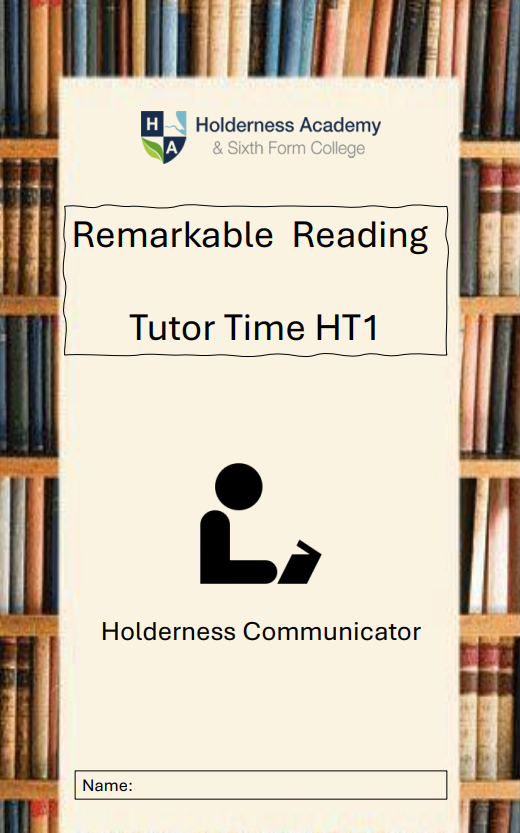
Our Tutor programme also includes a ‘remarkable reading’ initiative for KS3 & KS4 which features whole cohort reading of quality non-fiction texts, linked to our tutor programme.
Subject Specific Reading

We are delighted to share our subject reading lists via 'Love Reading’.
When books are purchased from the site, we receive 25% of the cover price to purchase books for our library.
Our reading lists can be found here: https://www.lovereading4kids.co.uk/school/36905
The Library at Holderness Academy & Sixth Form College
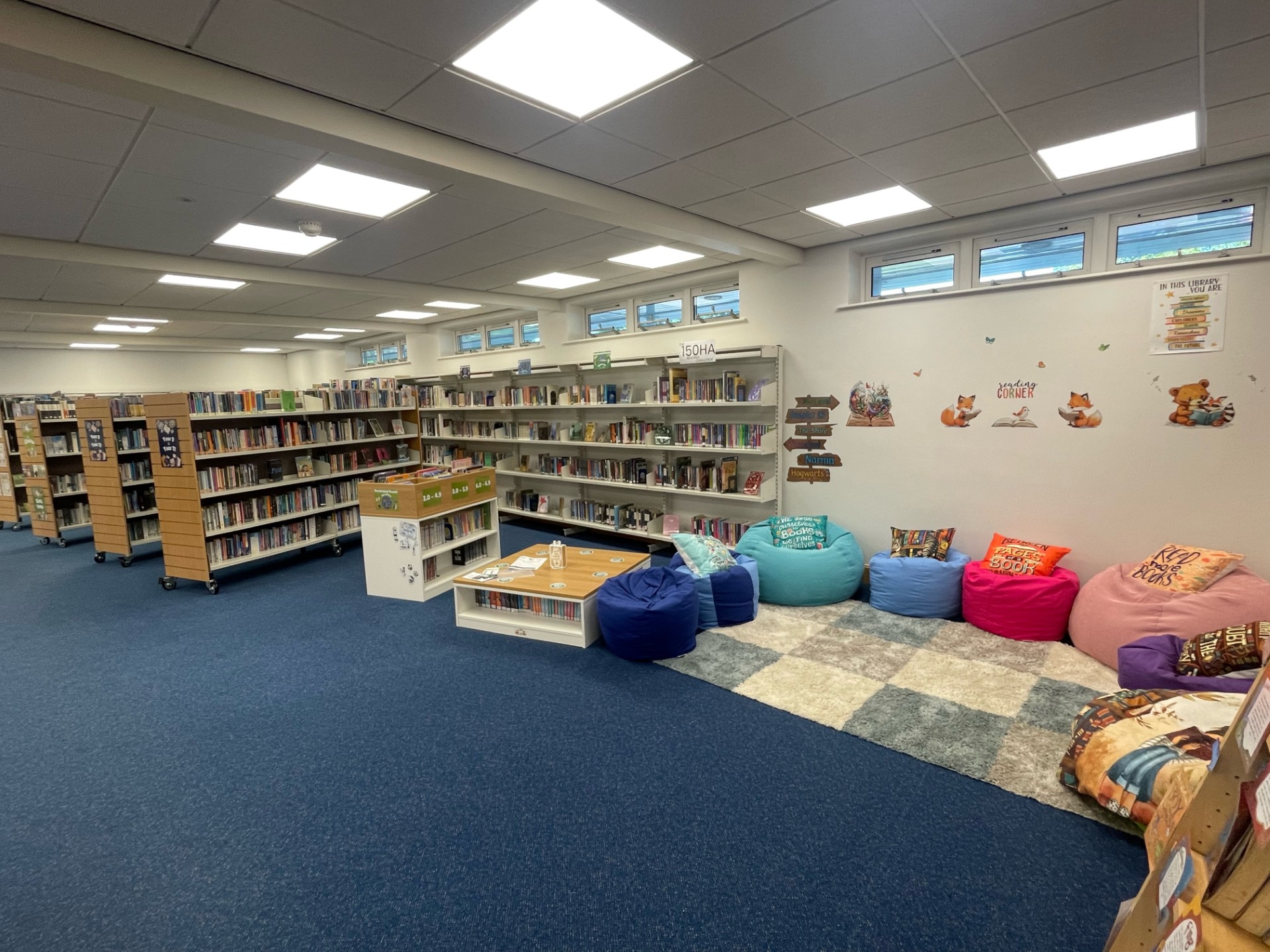
Our well stocked and welcoming library provides a safe space for our students to escape and delve into the world of words.
Students in Year 7 and 8 have timetabled library lessons to complete AR reading and quizzes.
Year 9 visit the library every two weeks to complete subject specific projects.
If you would like to join Year 9 on their aspirational reading journey this year, please use the following link to see how many minutes they are reading and logging on 'Track My Read':
https://trackmyread.org/public/group-challenge/xGllPXmdsdnwpGZH
The library is open to students during break.
Tiered Vocabulary
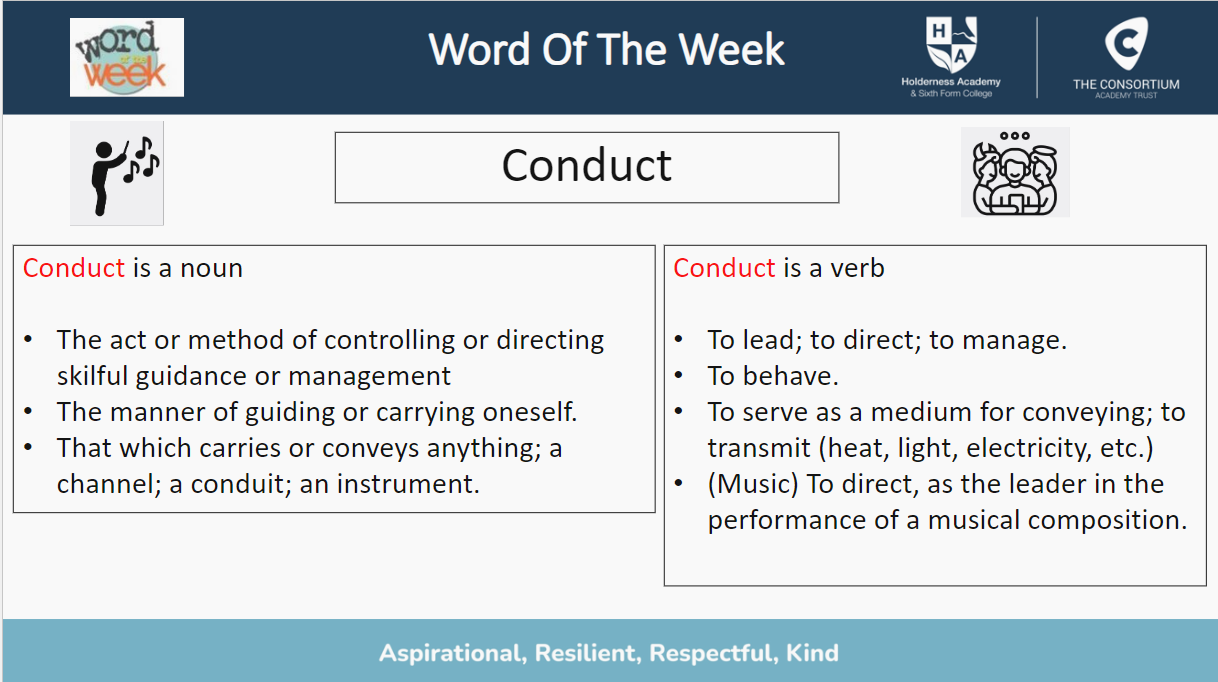
The Holderness Communicator will be able to access and use academic language.
- The ability to understand and access reading material is heavily reliant on understanding specific vocabulary.
- Students are explicitly taught Tier 2 and 3 vocabulary across the curriculum.
- Our 'Word of the Week' exposes all students to academic words which feature in a range of exams.
Track My Read
 Information for Parents/Carers regarding 'Track My Read' can be found here.
Information for Parents/Carers regarding 'Track My Read' can be found here.
Year 9 & 10 students can 'track their read' using an app on their phone. Fostering a love of reading, using the books available in our library.
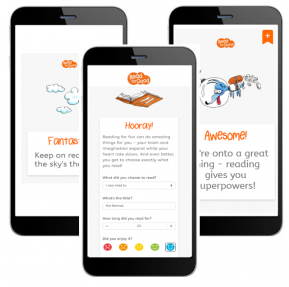
"I think that ‘Track My Read’ is a good way to ensure that students are reading, and to show the teachers they are engaging in the work. It’s easy to use, and takes only two minutes to submit. I think it’s helpful too because teachers can see what their students are reading, and then they know if the student needs to read something harder or more advanced." Year 9 Student
Book Clubs for Schools
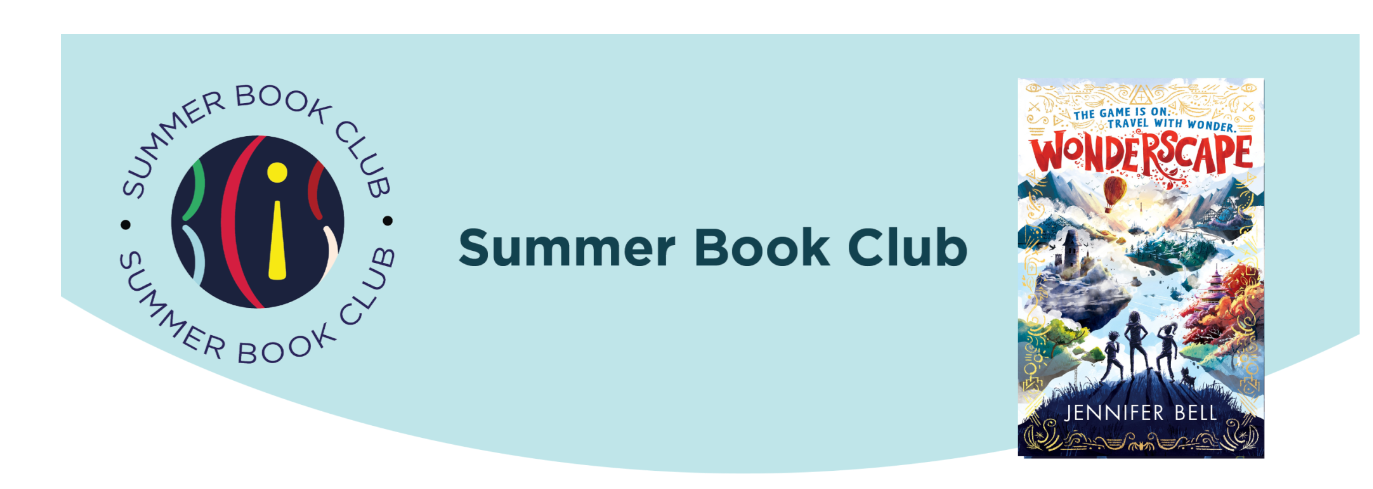
We are delighted to provide all new starters with a book to read for pleasure. This is through the 'book club for schools' initiative.
More information can be found here.



